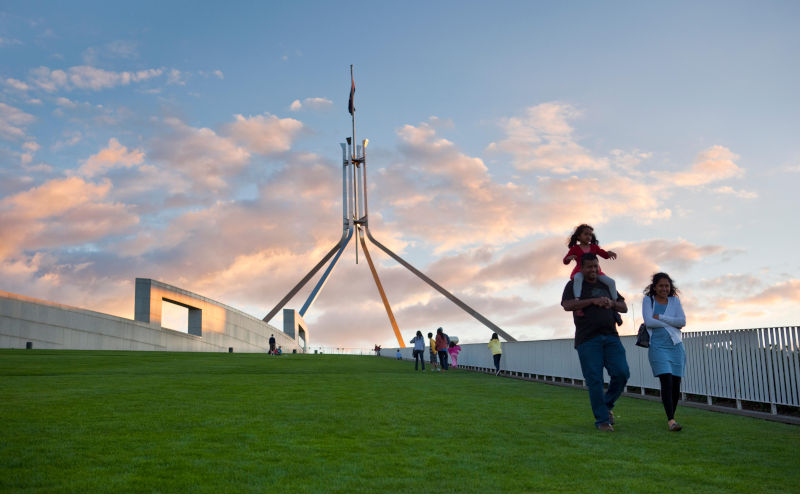When I'm 65...
April 27, 2025
The Australian Bureau of Statistics defines anyone over 65 as “old”. You don’t qualify for the means tested “old age pension” for two more years, and when politicians talk of ageing, they focus on nursing homes and care, dementia and falls. Ageing policy is confused and confusing.
Most people will have 20-30 more years of active life in paid work or contributing in multiple ways to family and community well-being after being defined as “old”. So, we need to plan how those years can be facilitated and structured, to harness the economic and social resource older people offer. Knowledge of family life is central to such policy formation.
A longer life expectancy (now 82 for males and 83.8 for females) results from lower infant mortality, better living conditions and improvements in health. It obviously varies by socio-economic status, exposure to dangerous working conditions and access to preventive healthcare. (Life expectancy for First Nations people is 71.9 years for males, 75.6 for females; for manual workers and the non-skilled it is five years less than the average). But for everyone, a longer life expectancy affects the nature of family life.
Family formation patterns have changed dramatically since the early 1980s. Australian Institute of Family Studies research identified a shift towards more adult offspring delaying marriage and staying longer in the parental home; the figures have continued to grow, with 54% of men and 47% of women aged 18-29 still living with parents. This is not just because there is difficulty in buying their own home; it also reflects a shift in attitudes to marriage and having children.
Women’s career concerns and a resistance to being a housewife and mother clash with the fact that it takes two incomes to buy a home. Sexual mores have changed so that young adults can carry on a “relationship” without fear of pregnancy or social disapproval, often within the parental home. Older parents are now living with older offspring and accommodations (both financial and emotional) must be made.
The nature of parenting has changed. Parents are becoming friends rather than mentors, reluctant to push children out of the nest. There is a disinclination to guide children, condemn wayward behaviour or demand reciprocal responsibility and contributions to family finances. Young people are more reluctant to settle and become a parent in an uncertain world, feeding into delay and thus altering the direction of the life course.
Grandparenting has also changed radically. The popular media notion that all Baby Boomers are living high on the hog and denying younger generations the chance to settle in their own family home must be challenged. Home ownership is higher for the Boomers — 82% at 70-74; 36% at 25-20 — because of inflated house prices: housing represents some 53% of the nation’s wealth. Homeowners will pass on to their offspring the biggest ever intergenerational transfer ($5.4 billion) when they die. But increased capital in a house does not translate into living a life of luxury for many Boomers, and an increasing number of families are cohabiting or relying on intergenerational support.
Where and how to live has complicated family life. Children living at home longer, even partnering and having their offspring within the family home, involves disruption and adaption for all. Grandparents become child carers, and the Baby Boomer generation has become the “sandwich generation” with many looking after their children and ageing parents.
Many grandparents have taken on childcare, filling the gap of childcare provision, but the assumption they will fall into line is under challenge as many older parents want or need to stay in the workforce longer themselves. Others don’t want to go through the exhausting child-rearing stage yet again, especially as child-rearing practices have become more onerous and intensive.
Nearly half of all divorces (78,000 in 2021) are of couples with children and a whole new category of “grandparent families” was recorded in the 2021 Census. About 27% of these comprise a single grandparent looking after grandchildren full-time; 16.4% are a couple with that responsibility. Others can be excluded from contacting their grandchildren because of custody and access disputes with their offspring’s partner which can leave a divorcing couple without grandparental support. There are also now more same-sex marriages and when they divorce (more female couples do than male), the issue of aged care becomes a new problem. Then there are singles.
Overall, these changing circumstances, along with an extended life expectancy, results in the growing phenomenon of more complex, extended multi-generational families than ever before in our history.
All governments need better information about family life than they have at present so policies about family support, generally, can work as a coherent social package at every stage of the age spectrum – childcare, care by children of parents, age care and care of an older partner by another (a growing, unacknowledged group today). The concept of “support” for ongoing family life should include better provision of housing for the young, better advice on parenting and support for young parents, more direct financial support for the sandwich generation carrying the load of intergenerational work and for the diversity of older people’s lives.
Value change is difficult when structural conditions are resistant, and policy drivers lack the data to enable reform. A more family-oriented approach to policies and programs should help counter the damaging trend towards individualism, isolation, and despair in our fragmenting society. Care of frailty is not the only focus of support required for those 65 and over. A realistic picture of family life, as it has transformed, must be the basis of planning for a stable society to function.



